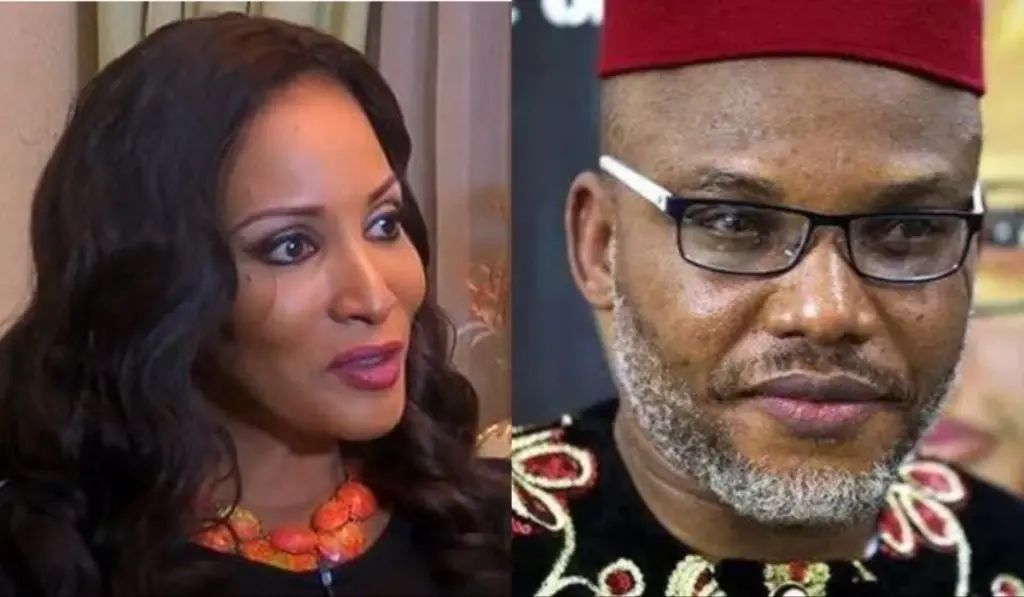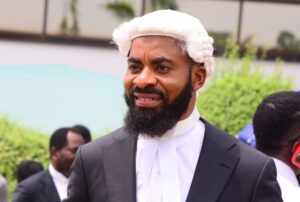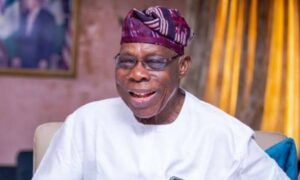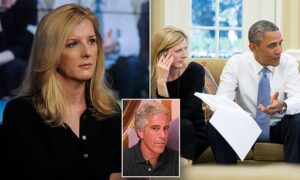The recent appointment of Bianca Ojukwu as the Minister of State for Foreign Affairs by President Bola Tinubu has generated discussions about the future of Nnamdi Kanu, the detained leader of the Indigenous People of Biafra (IPOB). Many see this appointment as a sign of hope for Kanu’s release and for healing relationships in Southeast Nigeria.
President Tinubu recently reshuffled his cabinet, bringing in five new ministers, including Ojukwu. This move, along with the reassignment of several current ministers, has drawn attention to the potential for improved relations between the federal government and the Southeast. Alongside Ojukwu, other ministers from the region include Doris Uzoka-Anite and Uche Nnaji.
Experts like Katchi Ononuju, the Director General of the Heritage Centre, believe that Ojukwu’s appointment indicates the president’s recognition of the need for national unity. Ononuju points out that Tinubu’s political ambitions may motivate him to seek reconciliation with the Southeast. However, he warns that merely appointing ministers is not enough; the president must take real actions that show commitment to inclusivity.
Ononuju emphasizes the importance of treating Ojukwu’s appointment as more than just symbolic. He argues that genuine inclusion requires tangible efforts and that past governments often failed to deliver on their promises, leading to disappointment among the people.
Ononuju also suggests that while Ojukwu may have a role, the ultimate decision regarding Kanu’s release lies with the government. Local leaders have approached the Minister of Justice about negotiating Kanu’s release, but the outcome remains uncertain. He notes that other individuals involved in similar movements have successfully negotiated their freedom, raising hopes that Kanu could also be granted a chance to return home.
With Tinubu now in power, there is a sense of optimism that he might depart from the divisive policies of former President Muhammadu Buhari, under whose administration Kanu was often targeted. Ononuju believes that releasing Kanu could be part of Tinubu’s strategy to foster peace in the Southeast.
Aloy Ejimakor, Kanu’s lead counsel, argues that Ojukwu is well-placed to advise the president on the consequences of Kanu’s continued detention on Nigeria’s international standing. He highlights that Ojukwu has previously called for Kanu’s release, and as a member of the cabinet, she can advocate for this issue with more authority.
Activist lawyer Madubuachi Idam views Ojukwu’s appointment as a strategic and commendable decision by Tinubu. He believes that her role could enhance the chances of Kanu’s release and improve the perception of Tinubu’s government in the Southeast. Idam encourages the president to take decisive action regarding Kanu’s case, suggesting it would resonate positively with the people of the region.
However, Idam warns that reshuffling the cabinet without placing qualified individuals in key roles will not solve the pressing issues facing Nigeria. He urges the president to make meaningful changes that address the real challenges experienced by citizens.







